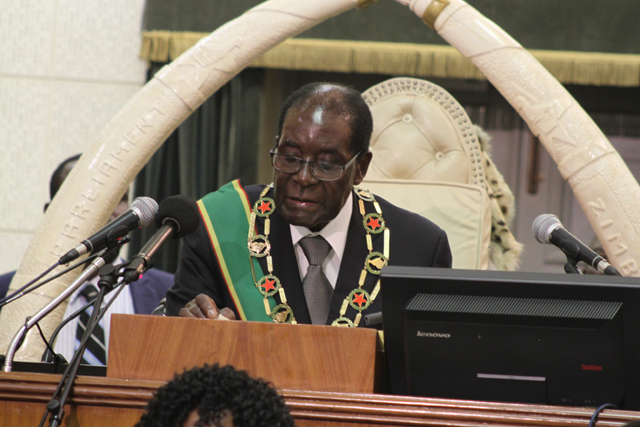Time for gender-responsive National Budget

Pamela Mhlanga Correspondent
As the Minister of Finance, Honourable Patrick Chinamasa presents his National Budget today, those of us who keep a careful eye on what happens with national resources are wondering whether the budget will support programmes and projects that deliver equally to women and men. People may well ask why this matters at all. It matters a great deal, because if women and men do not benefit equally from National Budget investments, this can be the difference between success and failure of national development and economic growth efforts.
It is not by accident that Hon Chinamasa, in his 2016 Budget Statement, highlighted that, “Notwithstanding resource constraints, the 2016 budget prioritises women empowerment projects and programmes, especially in view of the fact that 52 percent of (the) total population are women”.
Last year in October, almost 1 000 women working in all social and economic sectors convened in Harare at an indaba to lend voice and substance to what gender mainstreaming in the budget means.
They did this by identifying budget priorities for 2016 in all economic and social sectors. The indaba was convened by the Women’s Coalition of Zimbabwe (WCoZ) with the support of the Zimbabwe Women’s Resource Centre and Network (ZWRCN) and the Ministry of Women Affairs, Gender and Community Development, and highlighted the importance of paying attention to the different needs of women and men in the allocation of national resources.
To clarify, the impact of the budget on citizens in terms of benefits, opportunities, is not gender neutral. The National Budget has a different impact on men and women, for the simple reason that their experiences, needs and priorities are different. Thus water infrastructure development in a locality may not equally benefit women and men due to failure by authorities to consult on the gender dynamics in access to and use of water by women and men; who are responsible for fetching water, who use it most? The plans and budget for water access and use must be targeted towards addressing this need. Not only that, there is ample evidence on the different status of women and men in regard to access to, and benefit from, opportunities resulting from national development efforts. An example is that women and men do not own agricultural land on an equal basis. The Zimbabwe National Statistics Agency (ZIMSTATS) published a report in 2012, which shows that only 19,4 percent and 36,6 percent of large-scale and small-scale commercial farms respectively are owned by women.
If national resources are allocated towards securing land tenure for citizens, does it not make sense to direct them towards closing this gap between women and men in agricultural land ownership? This will enable women and men to contribute on an equal footing towards agricultural production and food security.
If a Government does not budget with gender equality in mind, and assumes that one size fits all, then it is failing in its duty to empower all citizens.
The likely scenario is that national resources will only benefit one sector or group, and worse still, perpetuate existing inequalities between women and men.
An example is investments, through the budget, to promote agriculture productivity. We may well ask the question — if, as Hon Chinamasa pointed out in his 2016 Budget Statement, the $28 million Presidential Inputs Scheme was earmarked to support 300 000 vulnerable households for the 2015-2016 cropping season, had any thought gone into how many of these households are male-headed, female-headed, child-headed? This matters not only from the point of view of ensuring fairness in allocations of these inputs, but also noting available statistics showing that female-headed households are poorer than male-headed ones.
It is important to make it clear that addressing gender inequalities and promoting gender equality through the National Budget is not an option.
National budgeting is informed by policy considerations. Zimbabwe has committed to prioritising gender equality as a matter of policy and law.
It follows that resources must be allocated towards meeting the gender equality commitments found in such key documents as the National Gender Policy (2013), Zim-Asset, and the Zimbabwe Constitution (2013).
There are positive developments in Government to budget with gender in mind. For example, the Ministry of Women Affairs, Gender and Community Development has the mandate to ensure that gender budgeting is mainstreamed in Government.
Full article on www.herald.co.zw










Comments